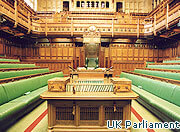MPs have voted in favour of legalising controversial techniques to create three and four-parent babies, despite serious safety and ethical concerns.
Following a House of Commons debate, MPs voted 382 to 128 to approve regulations allowing procedures aimed at creating children free from mitochondrial disease.
Conservative MP Fiona Bruce said during the debate, “once these procedures that we’re asked to authorise today go ahead, there will be no going back for society”.
Labour MP Rob Flello said he feared that families will be “let down tragically” due to the lack of certainty around the techniques.
Safety tests
A ComRes poll released ahead of the vote revealed that only ten per cent of the public think the Government is right to push through the regulations before the conclusion of recommended safety tests.
And the number of people opposing the procedures (41 per cent) is more than double the number of those who support them (20 per cent), according to the survey commissioned by Christian charity CARE.
Scientists have warned about the unknown consequences of the techniques, called Maternal Spindle Transfer and Pro Nuclear Transfer.
Facile
Dr Trevor Stammers, Programme Director in Bioethics and Medical Law at St Mary’s University in London, said: “We do not yet know the interaction between the mitochondria and nuclear DNA. To say that it is the same as changing a battery is facile. It’s an extremely complex thing.”
Dr Paul Knoepfler, associate professor at the University of California, Davis, commented: “Since this is uncharted territory and the children born from this technology would have heritable genetic changes, there are also significant unknown risks to future generations”.
MEPs have written to the Health Secretary Jeremy Hunt warning that the UK may be breaking European laws by approving the techniques, as they modify the germ line.
Altering genes
The Council of Europe’s Convention on Human Rights and Biomedicine is against anything that changes genes across generations.
The World Health Organisation also says that techniques “where there is an intention or possibility of altering the genes passed on to the next generation” should not be permitted “in the foreseeable future”.
Writing for the Telegraph online, columnist Dr Tim Stanley said Britain is being “unusually reckless” in pressing ahead with three and four-parent babies.
Future generations
He said: “Society has always, rightly, avoided opening the door to genetic engineering of babies”.
He commented: “If fashion dictates that certain characteristics should be eliminated, that could negatively affect future generations.”
The House of Lords is now set to vote on the Human Fertilisation and Embryology (Mitochondrial Donation) Regulations 2015, which if approved could come into force in October.

